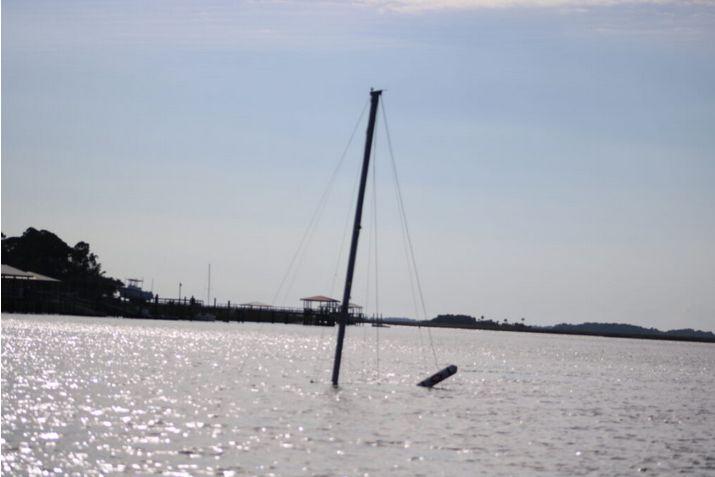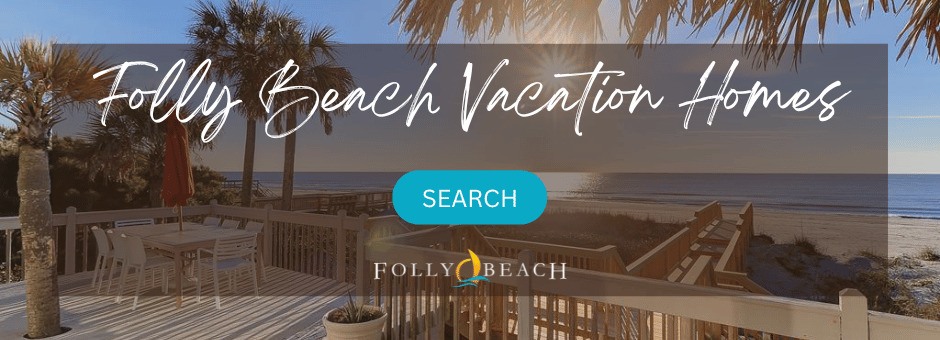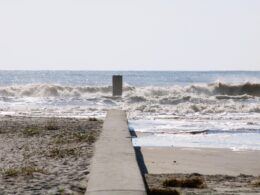Boating in the Lowcountry is hard to beat—until your vessel sinks. A sunken boat isn’t just a personal headache—it can become an environmental hazard and a major cost for the owner.
Why Sunken Boats Matter
When a boat sinks or is abandoned in our waterways, it can:
- Release fuel, oil, and other pollutants into fragile marshes and tidal creeks.
- Create navigation hazards (masts, upright keels, or partially submerged hulls).
- Become eyesores and reduce the safe recreational use of rivers and estuaries.
Recent removals in the Charleston region document these risks clearly.
The Legal Update in South Carolina
South Carolina now has stricter laws governing abandoned, derelict, and sunken vessels. Notable updates include:
- The proposed legislation in 2025 (Bill 367) would declare these vessels public nuisances, increase penalties (fines up to $10,000 and/or up to 60 days’ jail) for owners who allow vessels to become derelict or sunk.
- Under the new draft law, “abandoned vessels” and “derelict vessels” are specifically defined, procedural standards for notices and removal are established, and removal deadlines (10 or 21 days) are prescribed.
- The existing law under § 50-21-190 also continues: abandoning watercraft without permission on public waters is a misdemeanor (fines $1,000–$5,000, up to 30 days jail), and the owner must remove the craft within 14 days of conviction.
- The state’s ADV (Abandoned & Derelict Vessel) program is being strengthened, and there is now a public reporting tool via the MyCoast: South Carolina ADV Reporting Tool.
Key take-aways for boat owners:
- You are legally accountable if your vessel becomes abandoned, derelict, or sinks.
- If you find a sunken or derelict vessel, you can report it via the state’s tool.
- The cost of removal continues to fall on the owner or responsible party.
- The upcoming law will make enforcement faster and penalties steeper.
Updated Best Practices for Boaters
To avoid becoming part of this problem—and to ensure you protect yourself and the environment—follow these recommended steps:
- Prevent sinking in the first place: Regularly inspect hulls, bilge pumps, seams, and moorings. Before storms or high winds, secure your boat or consider hauling out.
- Keep registration and titling current: Under SC law you must title and register most motorized boats and watercraft.
- In case of sinking: Act quickly. Under the draft law, a sunken vessel must be removed within 21 days (or 45 days if a bona fide plan is filed) after sinking.
- If you spot an abandoned or sunken vessel you didn’t cause: Report it via the state tool, but avoid salvage without proper documentation—maritime law may apply.
- Understand your potential liability: Even if you didn’t abandon the boat intentionally, you can still be held responsible under new rules for costs and removal. Check local municipal codes as they may extend jurisdiction.
What This Means for Folly Beach & Coastal Waterways
On the waterways around Folly Beach—such as Folly River and nearby tidal creeks—wrecks and sunken craft are visible navigation hazards and environmental risks. The updated laws reinforce that boat owners must act before a minor issue becomes a major liability.
To keep Folly’s waters clean and safe:
If you’re towing, mooring, or leaving a boat in our area, ensure you have insurance, adequate signage, and regular inspections.
Check local launch ramps and marinas for abandoned vessel postings.
Report hazards near shorelines or creek entrances.













